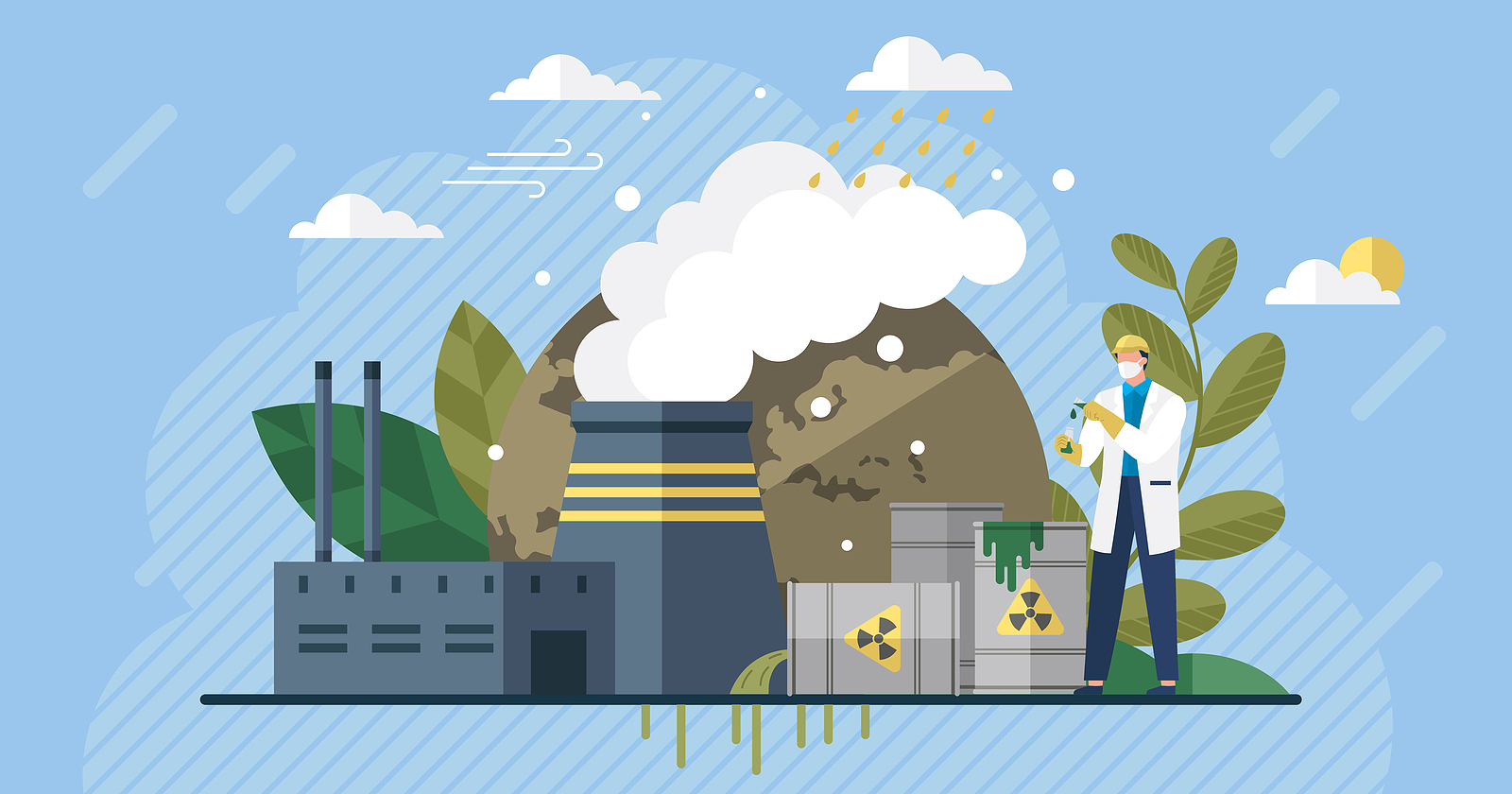
6 Powerful Steps for Industrial Waste Reduction – Transform Your Business Today!
In today’s competitive landscape, Industrial Waste Reduction is more than a buzzword—it’s the strategic key to business transformation and sustainability. As businesses evolve, the significance of Industrial Waste Reduction grows exponentially. It’s not merely a trend; it’s a dynamic strategy that can reshape operations and contribute to a sustainable future.
What is Industrial Waste & The Importance of Proper Industrial Waste Reduction and Disposal
Industrial waste refers to any waste generated by industrial activities, which can include manufacturing, mining, construction, and various other processes. The type and amount of industrial waste produced by a business depend on its industry and the processes involved. Here are some common types of industrial waste and reasons why proper disposal is crucial:
- Hazardous Waste:
- Examples: Chemicals, solvents, heavy metals, toxic materials.
- Importance of Proper Disposal: Hazardous waste poses serious risks to human health and the environment. Improper disposal can lead to soil and water contamination, air pollution, and long-term health hazards for both humans and wildlife. Compliance with regulations for the safe handling and disposal of hazardous waste is essential to prevent negative impacts on ecosystems and public health.
- Electronic Waste (E-waste):
- Examples: Discarded electronics, such as computers, monitors, and smartphones.
- Importance of Proper Disposal: E-waste often contains hazardous materials like lead, mercury, and other heavy metals. Inappropriate disposal methods, such as incineration or landfilling, can release these substances into the environment, leading to pollution and health risks. Proper recycling and disposal methods help recover valuable materials and minimize environmental harm.
- Solid Waste:
- Examples: Packaging materials, by-products of manufacturing processes.
- Importance of Proper Disposal: Solid waste can contribute to pollution if not managed appropriately. Landfilling solid waste can lead to the production of harmful leachate, impacting soil and water quality. Adopting sustainable practices, such as recycling and reducing waste generation, helps conserve resources and minimize the environmental footprint.
- Waterborne Waste:
- Examples: Contaminated water from industrial processes.
- Importance of Proper Disposal: Discharging untreated or inadequately treated waterborne waste into water bodies can harm aquatic ecosystems, affect water quality, and disrupt the balance of ecosystems. Compliance with water quality regulations and the implementation of effective wastewater treatment measures are essential to protect natural water resources.
- Airborne Emissions:
- Examples: Gases, particulate matter released during manufacturing processes.
- Importance of Proper Disposal: Airborne emissions can contribute to air pollution, leading to respiratory problems and environmental damage. Employing technologies to reduce emissions, such as air scrubbers or filters, is crucial for maintaining air quality standards and minimizing adverse health effects.
Proper industrial waste reduction is important not only for legal compliance but also for environmental sustainability and public health. Businesses that manage their waste responsibly contribute to a cleaner environment, reduce their environmental impact, and often benefit from cost savings through recycling and resource recovery. Additionally, adopting sustainable waste management practices can enhance a company’s reputation and contribute to long-term business success.
Benefits/Advantages: Unlocking the Potential
Embracing Industrial Waste Reduction extends far beyond being eco-friendly. The benefits are multifaceted, encompassing cost reduction, enhanced reputation, and active participation in global environmental preservation. Reducing waste isn’t just a choice; it’s a strategic advantage.
Implementing Industrial Waste Reduction strategies yields tangible advantages. First, businesses witness a substantial reduction in operational costs. By optimizing waste disposal methods and embracing recycling initiatives, companies save money on waste management, disposal fees, and resource consumption.
Moreover, the positive environmental impact enhances the business’s reputation. In an era where sustainability is a priority for consumers, aligning with eco-friendly practices attracts a broader customer base. Businesses become synonymous with responsible and conscious operations.
The advantages also extend to regulatory compliance. By actively participating in waste reduction, businesses ensure they meet environmental standards, avoiding legal complications and associated costs. The overall result is a resilient, forward-thinking business that thrives in a competitive market.
While Industrial Waste Reduction is a transformative strategy, navigating the green path requires careful planning and implementation. Here are some detailed tips to guide businesses in this transformative journey:
Conduct Comprehensive Waste Audits:
- Start by understanding your current waste generation. Conduct thorough waste audits to identify areas of improvement and set realistic reduction targets.
Implement Efficient Waste Disposal Methods:
- Optimize waste disposal methods by investing in modern, efficient technologies. From compactors to waste-to-energy systems, choose solutions that align with your business’s size and needs.
Promote Employee Engagement:
- Educate and involve employees in waste reduction initiatives. Foster a culture of responsibility and awareness, encouraging staff to minimize waste generation and actively participate in recycling programs.
Explore Sustainable Packaging:
- Evaluate and transition to sustainable packaging options. Eco-friendly materials not only reduce environmental impact but also appeal to eco-conscious consumers.
Invest in Recycling Infrastructure:
- Establish a robust recycling infrastructure within your business. Collaborate with local recycling facilities to ensure proper disposal and recycling of materials.
Continuous Monitoring and Improvement:
- Implement a continuous monitoring system. Regularly assess the effectiveness of waste reduction strategies, making adjustments as needed to ensure ongoing improvement.
Risk of Inaction: The Hidden Costs
Choosing not to engage in Industrial Waste Reduction can lead to various hidden costs and consequences. It’s not merely a matter of environmental impact; the risks extend to financial, legal, and reputational dimensions.
- Financial Implications:
- Businesses not investing in waste reduction risk increased operational costs. Disposal fees, waste management expenses, and resource consumption remain high, impacting overall profitability.
- Legal Liabilities:
- Neglecting environmental responsibilities may lead to legal complications. Non-compliance with waste disposal regulations can result in fines, legal battles, and damage to the business’s financial health.
- Reputational Damage:
- In an era where sustainability matters, a business ignoring waste reduction faces reputational damage. Consumers are more likely to support environmentally responsible companies, and neglecting this aspect can lead to a loss of customer trust.
5 FAQs About Industrial Waste Reduction
- How does waste reduction benefit my business?
- Waste reduction leads to lower operational costs, enhanced reputation, and increased appeal to environmentally conscious consumers.
- Is waste reduction complicated to implement?
- While it requires planning, our tailored solutions simplify the process, making it seamless for businesses of all sizes.
- Can waste reduction positively impact my bottom line?
- Absolutely. Reduced waste means lower disposal costs and potential revenue from recycled materials.
- Are there regulations to consider in waste reduction?
- Yes, but our guidance ensures businesses comply with environmental standards, avoiding legal complications.
- How quickly can I see the benefits of waste reduction?
- Businesses often experience cost savings and positive environmental impacts within the first few months of implementation.
Charting a Greener Future
In concluding this exploration of Industrial Waste Reduction, it’s evident that each step taken contributes to a greener and more sustainable future. Businesses that embrace change position themselves as pioneers in environmental responsibility.
Join the Movement for Sustainable Industrial Practices with Bay Area Trash Compactor!
Are you a business owner in the Bay Area looking to make a positive impact on the environment and reduce your industrial waste footprint? Bay Area Trash Compactor is here to empower you on your journey towards sustainable and responsible waste management.
Why Choose Bay Area Trash Compactor?
- Innovative Solutions: We offer cutting-edge trash compactors and waste reduction technologies tailored to meet the unique needs of your industry. Our solutions are designed to maximize efficiency while minimizing environmental impact.
- Environmental Stewardship: Join us in the commitment to environmental sustainability. By implementing our waste reduction solutions, you’ll contribute to minimizing landfill usage, reducing pollution, and conserving valuable resources.
- Cost-Effective Practices: Embrace cost-saving measures through efficient waste management. Our solutions not only promote sustainability but also help streamline your operations, leading to potential cost reductions in waste disposal and handling.
How You Can Take Action
- Contact Us for a Consultation: Let our experts assess your current waste management practices and recommend tailored solutions for industrial waste reduction. Schedule a consultation to explore the possibilities.
- Invest in Sustainable Technologies: Upgrade your waste management infrastructure with our state-of-the-art trash compactors and waste reduction systems. Our technologies are designed for ease of use, efficiency, and long-term savings.
- Educate Your Team: Empower your staff with the knowledge and skills to embrace sustainable waste management practices. We provide training sessions and resources to ensure a smooth transition to eco-friendly operations.
- Spread the Word: Be a leader in your industry by showcasing your commitment to environmental responsibility. Share your success story in waste reduction with Bay Area Trash Compactor, inspiring others to follow suit.
Contact Bay Area Trash Compactor Today!
Ready to make a positive change for your business and the environment? Contact Bay Area Trash Compactor today to start your journey toward sustainable industrial waste reduction. Together, let’s build a cleaner, greener future for the Bay Area and beyond!
Bay Area Trash Compactor: Transforming Waste into Sustainability!
Contents
- What is Industrial Waste & The Importance of Proper Industrial Waste Reduction and Disposal
- Benefits/Advantages: Unlocking the Potential
- 6 Powerful Steps for Industrial Waste Reduction: Navigating the Green Path
- Risk of Inaction: The Hidden Costs
- 5 FAQs About Industrial Waste Reduction
- Charting a Greener Future
- Join the Movement for Sustainable Industrial Practices with Bay Area Trash Compactor!
- Why Choose Bay Area Trash Compactor?
- How You Can Take Action
- Contact Bay Area Trash Compactor Today!
